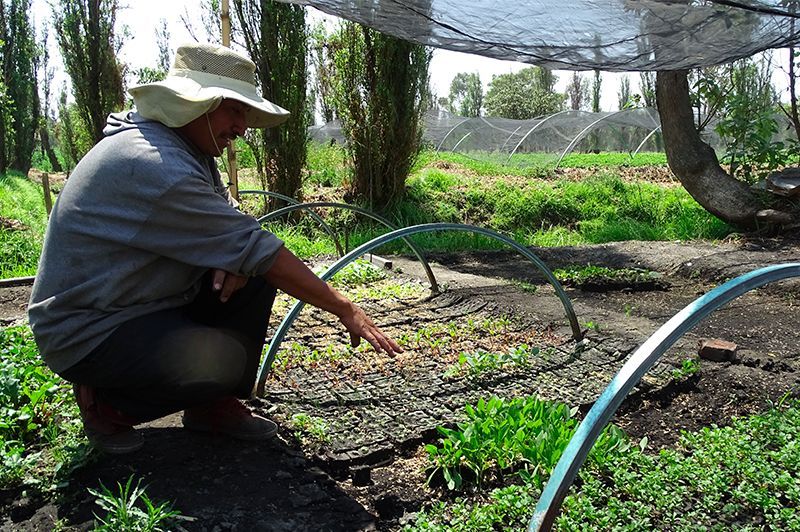Nature-based solutions enable climate change mitigation and adaptation, and safeguard biodiversity that could prevent a future pandemic.
By: Mauricio Luna Rodríguez, Regional Advisor on Forests, Biodiversity and Ecosystems for GIZ / EUROCLIMA+ Programme
San José - Costa Rica, June 5, 2020. The COVID-19 pandemic is one of the most significant health crises of our generation. Countries have taken actions to implement physical distancing and prevent the spread of the virus, and as a consequence, the economy in the short and medium term has been affected. Like climate change, the pandemic amplifies socio-economic inequities within and between countries. In Latin America, the most vulnerable populations have been hit hard by health and economic consequences.
The novel coronavirus came at a crucial time for the sustainable development agenda, given that momentous decisions were to be made in the COP26 on climate change, and also at the Biodiversity Summit. Given the context, both meetings were postponed, and although actions for climate action and biodiversity protection continue to be developed, it is important to ask ourselves how to ensure a future with greater equity and that places environmental protection at the centre.
Part of the answer lies in Nature-based Solutions (NbS). The International Union for the Conservation of Nature (IUCN) emphasizes that NbS are actions to protect, sustainably use, and restore natural or modified ecosystems to meet societal challenges while improving human well-being and providing benefits to biodiversity.
The NbS are options for reducing the risk of the emergence of new viruses, acting against climate change, and generating "green jobs". The NbS depend on healthy ecosystems (natural or human-modified) and respond to social challenges such as biodiversity loss, water provision, food security, disaster risk reduction, human health protection, as well as climate change adaptation and mitigation.
“Integrating the local workforce into restoration and reforestation programmes can generate jobs in the communities”
How can NbS protect our health and reduce the risk of the next viral epidemic?
The loss of biodiversity increases the risk of transmission of diseases from animals to humans (known as "zoonotic diseases"). In previous years this happened with HIV, Ebola, Zika, and more recently COVID-19, all diseases that have passed from animals to humans. In addition, and according to the Intergovernmental Science-Policy Platform on Biodiversity and Ecosystem Services (IPBES), with the degradation of ecosystems globally, many species are running out of space to move, and interactions with humans are increasing. In addition, wildlife trafficking and consumption of wild animals can increase the occurrence of viruses that jump from animals to people.
In contrast, biodiversity conservation using NbS promotes healthy ecosystems, reducing the risk of the emergence of zoonotic diseases. For example, through protected areas, key ecosystems are conserved, and these are part of the solution to reduce the risk of emergence of new zoonoses, generating opportunities that benefit human health.
How can NbS tackle climate change?
NbS can support the fight against climate change in a cost-effective way. There are two types of natural solutions that have become relevant in climate action: Ecosystem-based Adaptation (EbA) and Ecosystem-based Mitigation (EbM). EbA is defined as the use of biodiversity and ecosystem services as part of a comprehensive strategy to help people reduce their vulnerability to the adverse effects of climate change. For example, planting trees reduces the effect of "heat islands" in urban areas; in agricultural and mountain areas it prevents soil erosion and protects people from flash floods caused by heavy rainfall; on coasts, mangroves provide protection from storm surges and progressive sea level rise.
While EbA strengthens people's resilience to the impacts of climate change, EbM emphasises the importance of ecosystem functionality, with the aim of securing natural sinks and reducing sources of greenhouse gases. This mitigation approach includes the conservation of a wide range of ecosystems such as forests, wetlands, as well as other coastal and marine habitats (e.g. mangroves and seagrasses), which contribute to the mitigation of climate change. According to a recent publication of the IUCN and Oxford University, it is estimated that EbM can contribute to one-third of the mitigation required to contain the increase in average global temperature to below 2°C by 2030.
Green economic recovery
Looking ahead, governments are planning economic stimulus packages for a post-COVID-19 recovery. NbS can provide an opportunity for a "green recovery" that creates jobs, reduces the risk of new zoonotic diseases, and addresses climate change. Planning, implementing, monitoring and evaluating NbS initiatives is knowledge and labour intensive and will require the creation of jobs to complete these tasks. For example, integrating the local workforce into restoration and reforestation programmes can generate jobs in communities, while providing multiple additional benefits, including climate change adaptation and mitigation, the reduction of risk from natural disaster events, as well as biodiversity conservation and reduction of the risk of future zoonotic diseases.
NbS in the EUROCLIMA+ Programme
The Forests, Biodiversity and Ecosystems sector of the EUROCLIMA+ Programme supports various NbS initiatives to tackle climate change that provide benefits in terms of biodiversity and the generation of local jobs. One example is the Ecosystem Services, Goods and Functions project implemented in Costa Rica and Peru. One of the objectives of this initiative is to address water scarcity related to climate variability through "sowing and harvesting water". This ancestral practice combines the creation of small reservoirs to accumulate rainwater upstream with the integral protection of the water resource, which allows the infiltration of water into the subsoil and its use in springs downstream. These measures promote community action and the sustainability of agricultural production, as well as the generation of local jobs, while encouraging the protection of natural ecosystems throughout the basin.
Another example is the Municipal Actions project in Mexico and Brazil, which aims to increase community resilience through EbA measures in selected municipalities. The measures implemented, such as agroforestry systems, contribute to the conservation of biodiversity and are executed in conjunction with the productive sector, which helps to boost the economy and generate green jobs. Subsequently, EbA measures are scaled up to Municipal Development Plans and Local Biodiversity Strategies to ensure their sustainability.
About EUROCLIMA+:
EUROCLIMA+ is a programme financed by the European Union and co-financed by the Federal Government of Germany through the Federal Ministry for Economic Cooperation and Development (BMZ), as well as by the governments of France and Spain. It aims to reduce the impact of climate change and its effects in 18 Latin American and Caribbean countries by promoting climate change mitigation and adaptation, resilience and investment. The Programme is implemented under the synergistic work of seven agencies: the Spanish Agency for International Development Cooperation (AECID), the French Development Agency (AFD), the Economic Commission for Latin America and the Caribbean (ECLAC), Expertise France (EF), the International and Ibero-American Foundation for Administration and Public Policy (FIIAPP), the German Society for International Cooperation (GIZ), and UN Environment.
The projects "Sowing and harvesting water, water service charges, and recognition of payment for environmental services under the framework of South-South cooperation" and "Municipal Actions in Mexico and Brazil" are part of the "Forests, Biodiversity and Ecosystems" component of the EUROCLIMA+ programme, implemented by EF and GIZ.
Press contact for more information:
Maite Cigarán: This email address is being protected from spambots. You need JavaScript enabled to view it.
Webinar related:




